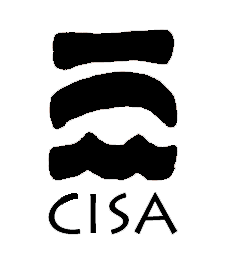‘BAD’ TRASH: PROBLEMATISING WASTE IN BLANTYRE, MALAWI
- Available online in Detritus - Volume 12 - September 2020
- Pages 187-200
Released under CC BY-NC-ND
Copyright: © 2020 CISA Publisher
Abstract
‘Waste’ is everywhere, a common aspect of daily life in both the West and the Global South. However, the ways in which we as individuals understand it as a problem is far from universal. It does not exist independently from the people it affects, rather, waste, as a problem, is continually made and remade through human practice. The purpose of this article is to explore how and why certain ‘waste’ items are and become understood as problems. We adopt Foucault’s (1984) notion of ‘problematisa-tion’, as an analytical lens for conceptualising processes of problem formation through the eyes of two different groups working within and on the margins of Mzedi Dump Site in Blantyre, Malawi: subsistence maize growers and informal waste pickers. Drawing on extensive qualitative and ethnographic fieldwork, our findings suggests that for those working at Mzedi, waste problematisations are shaped by the tangible: the visible, and often painful impacts that Mzedi’s hazards have on their lives and livelihoods. However, the ultimate problematisation of waste lies in its utility, i.e. ‘good’ waste, is internalised based on its value. ‘Bad’ trash however, is problematised because it has no value, and is therefore considered useless, a problem taking up time and space that could be utilised more profit-ably. Understanding these processes of problem formation, and the degree to which waste problematisations are personal and/or socially constructed, has important ramifications for the adoption of appropriate waste management strategies and should inform a more nuanced and inclusive waste management studies discourse.Keywords
Editorial History
- Received: 08 Jan 2020
- Revised: 30 Mar 2020
- Accepted: 15 Apr 2020
- Available online: 24 Jul 2020
References
Ablitt, Jonathan, & Smith, Robin James. (2019). Working out Douglas’s aphorism: Discarded objects, categorisation practices, and moral inquiries. The Sociological Review, 67(4), 866-885.
DOI 10.1177/0038026119854271
Amusan, A.A., Ige, D.V., & Olawale, R. (2005). Characteristics of Soils and Crops’ Uptake of Metals in Municipal Waste Dump Sites in Nigeria. Journal of Human Ecology, 17(3), 161-175
Bacchi, Carol. (2009). Analysing Policy: What’s the Problem Represented To Be?
Bacchi, Carol. (2012). Why Study Problematizations? Making Politics Visible. Open Journal of Political Science, 2, 1-8.
DOI 10.4236/ojps.2012.21001
Bacchi, Carol. (2015). The Turn to Problematization: Political Implications of Contrasting Interpretive and Poststructural Adaptations. Open Journal of Political Science, 5, 1-12.
DOI 10.4236/ojps.2015.51001
Bacchi, Carol. (2016). Problematizations in Health Policy:Questioning How “Problems” Are Constituted in Policies. SAGE Open, 6(2), 2158244016653986.
DOI 10.1177/2158244016653986
Barnett, Clive, & Bridge, Gary. (2016). The Situations of Urban Inquiry: Thinking Problematically about the City. 40(6), 1186-1204.
DOI 10.1111/1468-2427.12452
Davoudi, Simin. (2000). Sustainability: A new vision for the British planning system. Planning Perspectives, 15, 123-137.
DOI 10.1080/026654300364056
Davoudi, Simin. (2009). Scalar tensions in the governance of waste: the resilience of state spatial Keynesianism. Journal of Environmental Planning and Management, 52(2), 137-156.
DOI 10.1080/09640560802666495
Denzin, Norman K., Lincoln, Yvonna S., MacLure, Maggie, Otterstad, Ann Merete, Torrance, Harry, Cannella, Gaile S., . . . McTier, Terrence. (2017). Critical Qualitative Methodologies. Reconceptualizations and Emergent Construction, 10(4), 482-498.
DOI 10.1525/irqr.2017.10.4.482
Douglas, M. (1966). Purity and Danger. London: Routledge
Foucault, M. (1984). Polemics, Politics, and Problematizations: An Interview. In P. Rabinow (Ed.), The Foucault Reader. New York: Pantheon
Foucault, M. (2001). Fearless Speech. New York: Semiotext(e)
Gregson, Nicky, & Crang, Mike. (2010). Materiality and waste: Inorganic vitality in a networked world. Environment and Planning A, 42, 1026-1032.
DOI 10.1068/a43176
Gutberlet, Jutta, & Uddin, Sayed Mohammad Nazim. (2017). Household waste and health risks affecting waste pickers and the environment in low- and middle-income countries. International Journal of Occupational and Environmental Health, 23(4), 299-310.
DOI 10.1080/10773525.2018.1484996
Hillier, J. (2009). Assemblages of Justice: The ‘Ghost Ships’ of Graythorp. International Journal of Urban and Regional Research, 33(3), 640-661.
DOI 10.1111/j.1468-2427.2009.00861.x
Hird, Myra J. (2012). Knowing Waste: Towards an Inhuman Epistemology. Social Epistemology, 26(3-4), 453-469.
DOI 10.1080/02691728.2012.727195
Ka-Ming, W., & Jieying, Z. (2019). Living with waste: Becoming “free” as waste pickers in Chinese cities. China Perspectives(2), 67-74
Kalina, M., Tilley, E., Ali, F., Woodenberg, W., Reimers, B., & Trois, C. (2019). Blurred Lines: Agricultural Production on the Margins of a Dumpsite in Blantyre, Malawi. Paper presented at the 17th International Waste Management and Landfill Symposium, Sardinia, Italy
Kennedy, G. (2007). An Ontology of Trash: The Disposable and its Problematic Nature. Albany: State University of New York Press
Kitchin, R., & Tate, N.J. (2000). Conducting Research in Human Geography. New Jersey: Prentice Hall
Li, Guangke, Chen, Junyan, Yan, Wei, & Sang, Nan. (2017). A comparison of the toxicity of landfill leachate exposure at the seed soaking and germination stages on Zea mays L. (maize). Journal of Environmental Sciences, 55, 206-213
Moore, Sarah A. (2012). Garbage matters:Concepts in new geographies of waste. Progress in Human Geography, 36(6), 780-799.
DOI 10.1177/0309132512437077
Ndau, H., & Tilley, E. (2018). Willingness to Pay for Improved Household Solid Waste Collection in Blantyre, Malawi. Economies, 6(4), 54
Oberg, Angela. (2019). Problematizing Urban Shit(ting): Representing Human Waste as a Problem. 43(2), 377-392.
DOI 10.1111/1468-2427.12744
Okoronkwo, N.E., Igwe, J.C., & Onwuchekwa, E.C. (2005). Risk and health implications of polluted soils for crop production. African Journal of Biotechnology, 4(13), 1521-1524
Oloko, Patrick. (2018). Human waste/wasting humans: dirt, disposable bodies and power relations in Nigerian newspaper reports. Social Dynamics, 44(1), 55-68.
DOI 10.1080/02533952.2018.1441111
Opaluwa, O.D., Aremu, M.O., Ogbo, L.O., Abiola, K.A., Odiba, I.E., Abubakar, M.M., & Nweze, N.O. (2012). Heavy metal concentrations in soils, plant leaves and crops grown around dump sites in Lafia Metropolis, Nasarawa State, Nigeria. Advances in Applied Research, 3(2), 780-784
Pastor, J., & Hernández, A.J. (2012). Heavy metals, salts and organic residues in old solid urban waste landfills and surface waters in their discharge areas: Determinants for restoring their impact. Journal of Environmental Management, 95, 542-549
Petts, Judith, & Niemeyer, Simon. (2004). Health risk communication and amplification: learning from the MMR vaccination controversy. Health, Risk & Society, 6(1), 7-23.
DOI 10.1080/13698570410001678284
Reno, Joshua. (2015). Waste and Waste Management. Annual Review of Anthropology, 44(1), 557-572.
DOI 10.1146/annurev-anthro-102214-014146
Reno, Joshua Ozias. (2014). Toward a New Theory of Waste: From ‘Matter out of Place’ to Signs of Life. Theory, Culture & Society, 31(6), 3-27.
DOI 10.1177/0263276413500999
Sang, Nan, Han, Ming, Li, Guangke, & Huang, Mingzhu. (2010). Landfill leachate affects metabolic responses of Zea mays L. seedlings. Waste Management, 30, 856-862
SOFET. (2016). Mzedi Water Analysis. Blantyre: Society for Friends of Environment and Technology
Spelman, Elizabeth V. (2011). Combing Through the Trash: Philosophy Goes Rummaging. The Massachusetts Review, 52(2), 313-325
Turnbull, Nick. (2006). How Should We Theorise Public Policy? Problem Solving and Problematicity. Policy and Society, 25(2), 3-22.
DOI 10.1016/S1449-4035(06)70072-8
Van Bemmel, Alexis, & Parizeau, Kate. (2019). Is it food or is it waste? The materiality and relational agency of food waste across the value chain. Journal of Cultural Economy, 1-14.
DOI 10.1080/17530350.2019.1684339
Viney, W. (2014). Waste: A Philosophy of Things. London: Bloomsbury
Wang, B. (2019). Sacred Trash and Personhood: Living in Daily Waste-Management Infrastructures in the Eastern Himalayas. Cross-Currents: East Asian History and Culture Review, 30, 101-119




